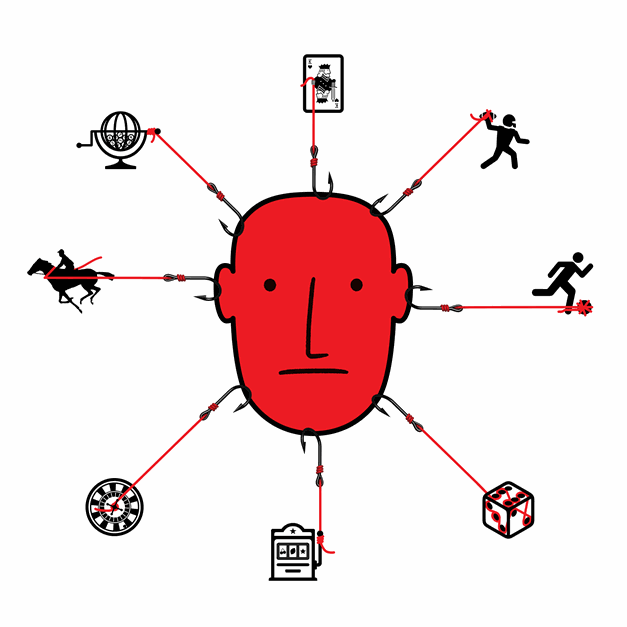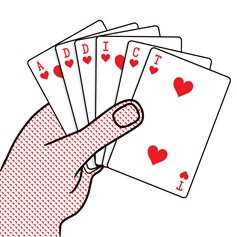Philip Bowcock, CEO of UK bookmaker William Hill, discusses the firm’s strategy to combat gambling-related harm and addiction.
In the film version of Casino Royale, Daniel Craig’s James Bond takes home a stunning £66 million (including an Aston Martin) after winning at cards – leading some to suggest he should switch his favored game from roulette to poker. In the words of his creator Ian Fleming, “Bond has always been a gambler.”

But the picture of gambling in culture is not always so glamorous. In The Gambler, notorious gambling addict Fyodor Dostoyevsky has his main character paint a bleak and troubling picture: “At that point I ought to have gone away, but a strange sensation rose up in me, a sort of defiance of fate, a desire to challenge it, to put out my tongue at it. I laid down the largest stake allowed – four thousand gulden – and lost it. Then, getting hot, I pulled out all I had left, staked it on the same number, and lost again, after which I walked away from the table as though I were stunned. I could not even grasp what had happened to me.”
What is the place for gambling in people’s lives and in society? This question is more important than ever, as gambling becomes more accessible online, big markets like the US open up to regulated gambling, and politicians and regulators look to crack down on the harm that gambling can cause.
Many who find the industry challenging see a fairly simple solution: stop selling the products. But many people do want to gamble and enjoy it responsibly. The opportunity is for the major players in the industry to understand where the real challenges lie and consider how they can respond.
William Hill sees its future dependent on healthy, safe, gambling. The company of 16,000 employees, with international operations in betting shops, sports books and online gambling, has set out a long-term ambition to ensure that nobody is harmed by gambling.
When it launched its new sustainability strategy earlier this year, CEO Philip Bowcock made the company’s point of view clear: “Gambling is meant to be a leisure activity, not a source of human misery.” Brunswick recently spoke with Mr. Bowcock about gambling-related harm and what the company’s new strategy intends to deliver for its customers and the societies where it operates. “We can be, and we want to be, part of the solution,” Mr. Bowcock says.
Problem gambling has become a front-page issue in the UK. How do you see the challenge?
People are very concerned about problem gambling, and they’re right to be. Look, gambling can be fun. That £1 accumulator that ends up with the family sitting around the television on a Sunday afternoon, wondering if that final fifth win is going to come in – that can be great fun. But when it’s 2 o’clock in the morning and someone is playing online casino chasing their losses in a darkened room, that’s not fun.
For too long, we have not taken seriously enough the challenge of problem gambling. We’ve talked about the small proportion of people who are affected by harm or addiction, and we’ve focused on the responsibility that each of our customers has to keep themselves safe.
We chose to take a fresh look at the challenge and how we respond, and we have to face facts: Too many people are affected. In the UK the number is frequently put at 430,000 people who, at any given moment, have a real problem with gambling. In the US, some have suggested that 6 million people are addicted to gambling. And we know there are many more who are at risk of experiencing harm.
It doesn’t start and stop with financial harm. Very often multiple factors compound the vulnerability that people face. Of those people who have experienced problems with gambling, three in five have suffered depression and 61 percent have missed work to gamble. It also has a serious impact on friends and family – in one study, 20 percent of online divorce petitions cited gambling as a cause.
We acknowledge that every type of gambling product has the potential to cause harm to our customers. But we don’t want people to experience harm – we want to be a part of helping that to stop. Society expects it. Customers need it. And our colleagues actually want to do something about it as well.

